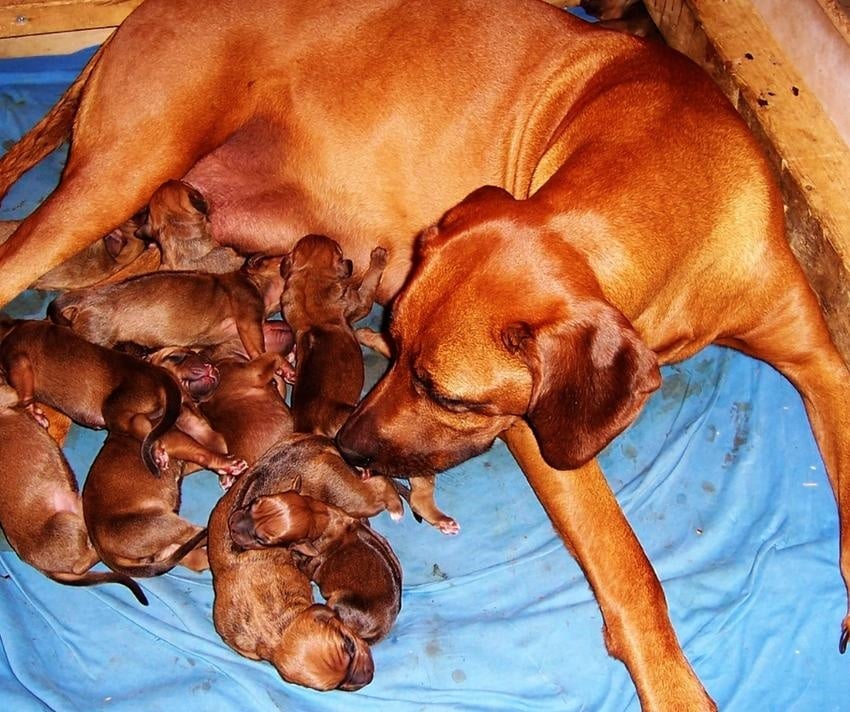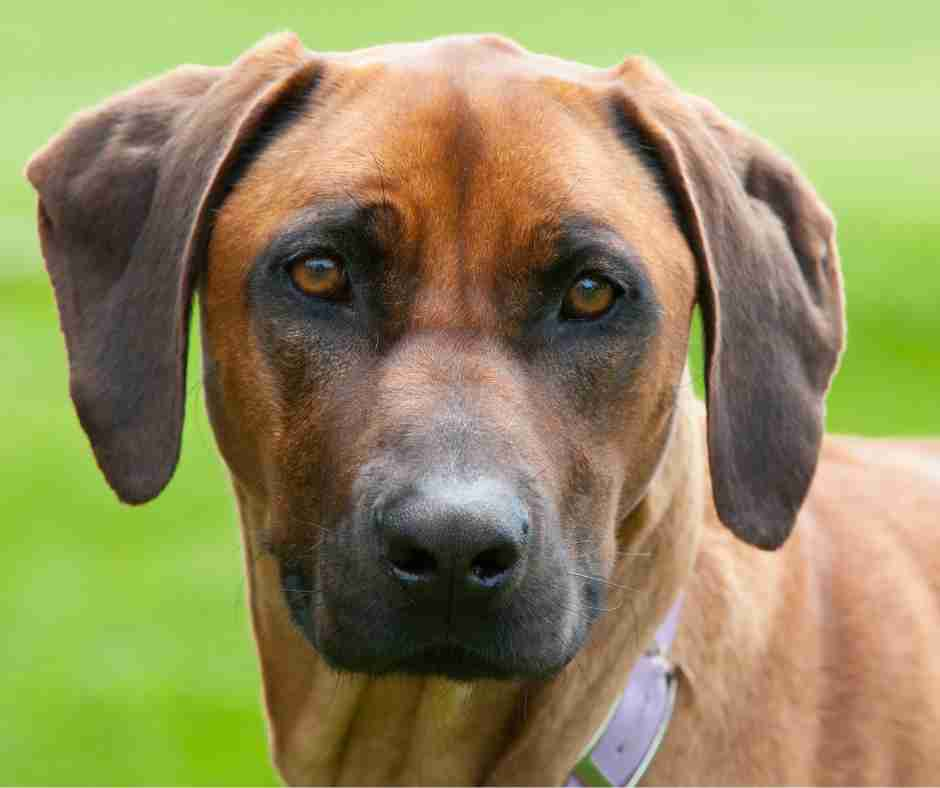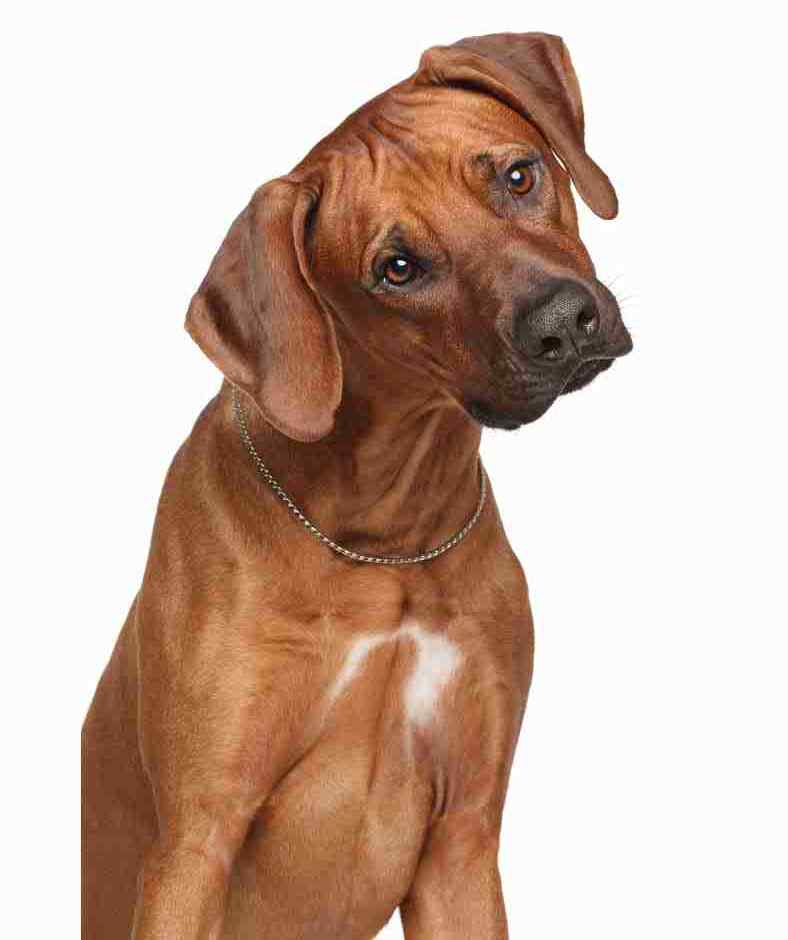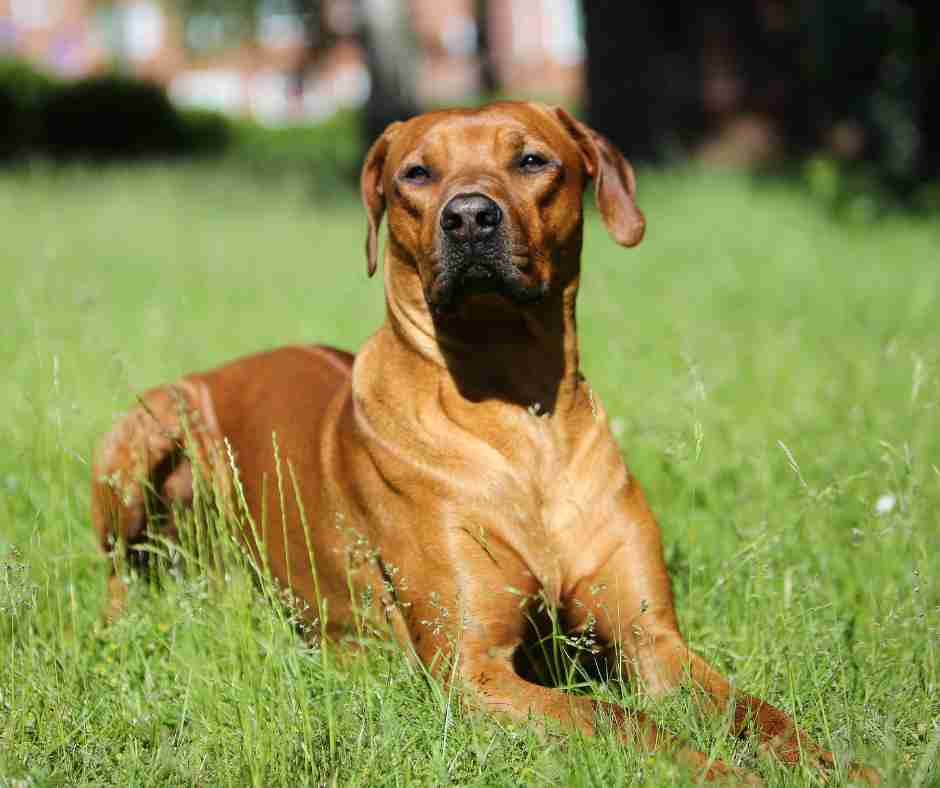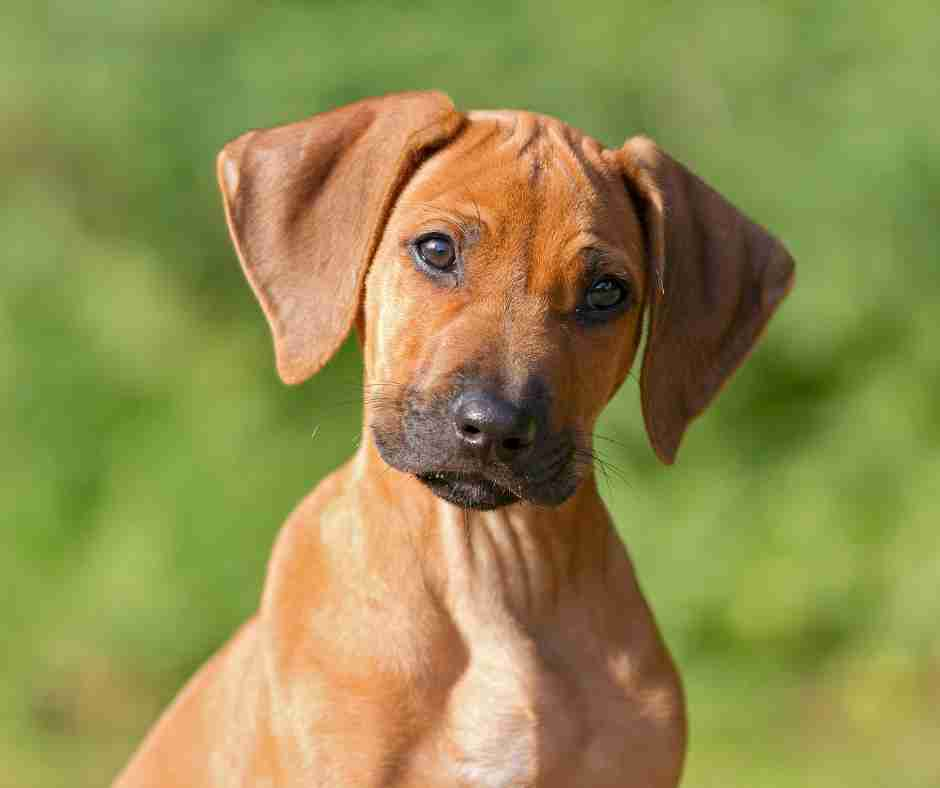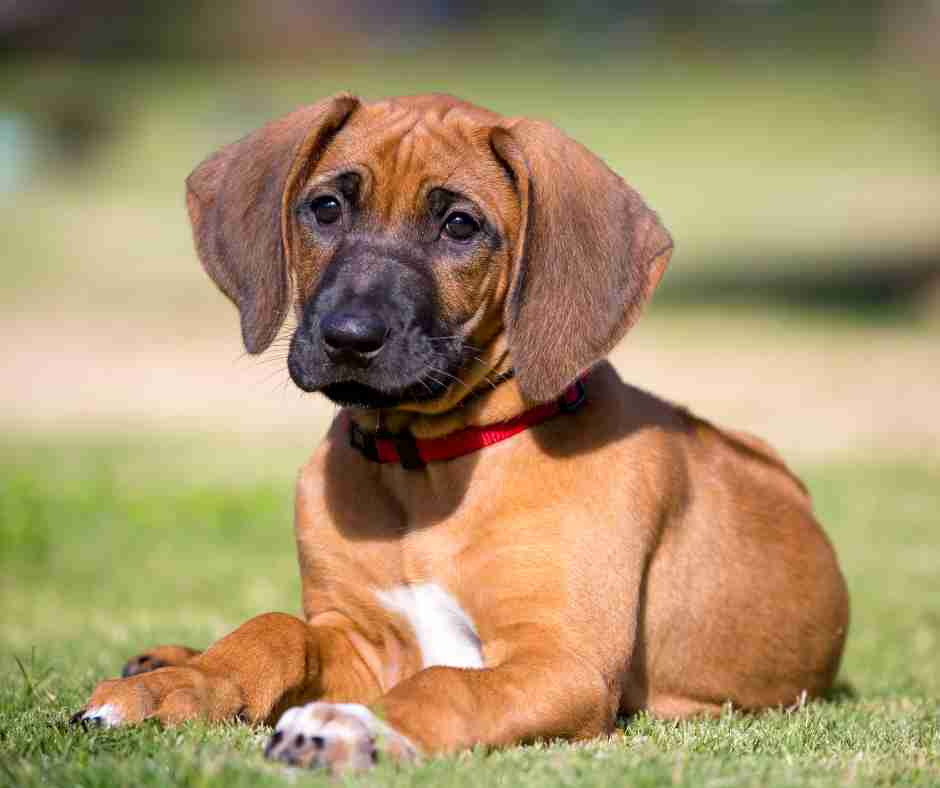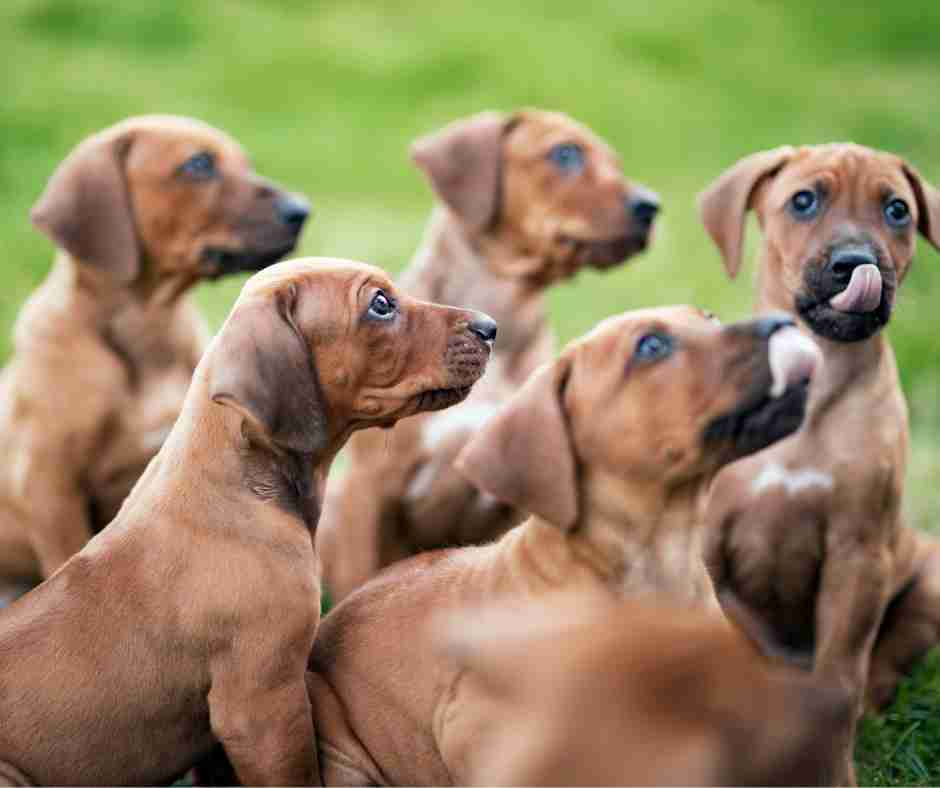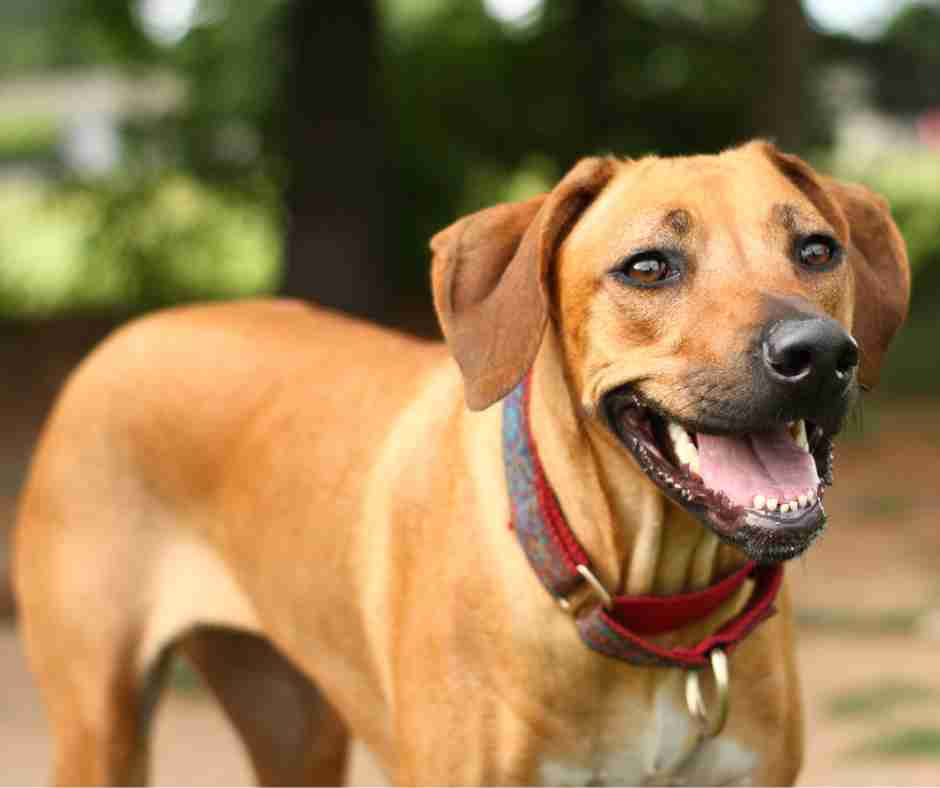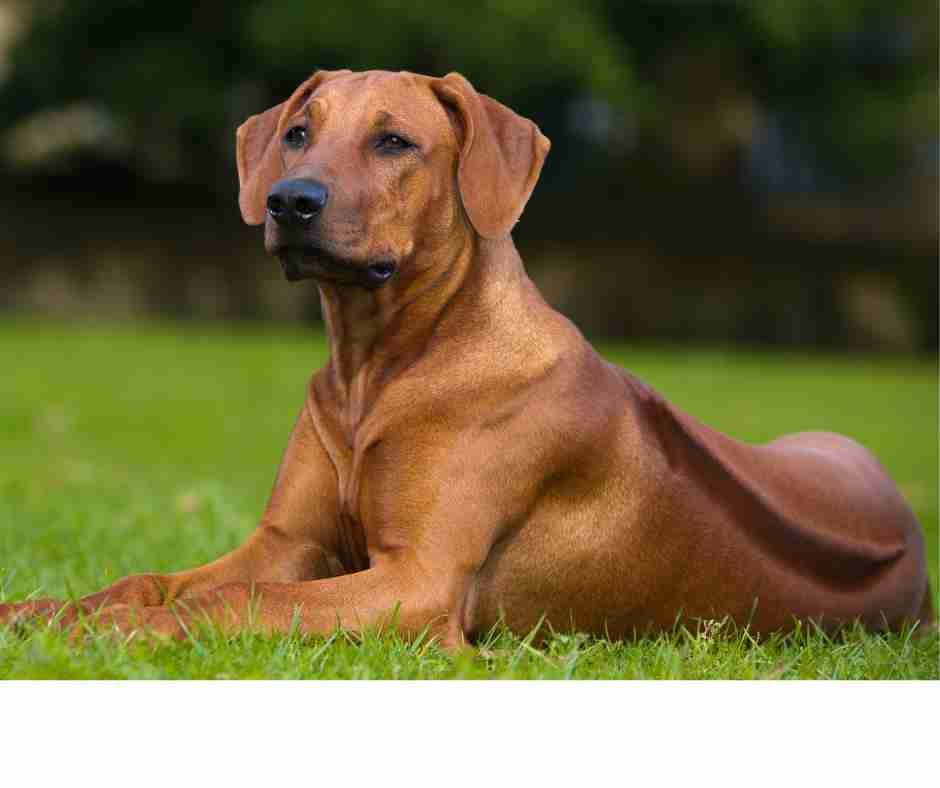The Rhodesian Ridgeback is a dog breed that commands attention with its striking appearance and storied history. Known for the distinctive ridge of hair along their back, these dogs are not only visually unique but also possess a rich heritage as hunters and protectors.
Originating from South Africa, the Rhodesian Ridgeback was initially bred to track and corner lions, showcasing a remarkable blend of bravery, strength, and loyalty. Today, they are beloved family companions, admired for their intelligence, independence, and affectionate nature.
In this comprehensive guide, we will delve into everything you need to know about the Rhodesian Ridgeback. From their historical roots and physical characteristics to their personality traits and care requirements, this profile provides a detailed look at what makes these dogs so special.
Whether you are considering adding a Rhodesian Ridgeback to your family or are simply intrigued by this fascinating breed, read on to discover all the essential information about the “Lion Dog” of South Africa.
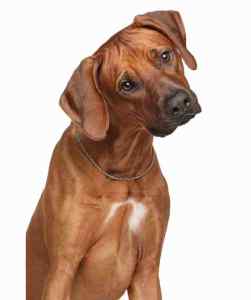 Rhodesian Ridgeback Breed Facts
Rhodesian Ridgeback Breed Facts
- Country of Origin: South Africa
- Breed Group: Hound Group
- Height: 24-27 inches (61-69 cm)
- Weight: 70-85 pounds (32-39 kg)
- Lifespan: 10-12 years
- Average Price: $1,500-$2,500
- Hypoallergenic: No
- Good with Kids: Yes, with supervision
Rhodesian Ridgeback Breed History
The Rhodesian Ridgeback originated in South Africa and is named for the distinctive ridge of hair running along its back. This breed was developed by Boer settlers in the 16th and 17th centuries. These settlers needed a versatile hunting dog capable of enduring harsh African climates and fending off predators such as lions and leopards.
By crossing their European dogs with semi-domesticated, ridged hunting dogs kept by the Khoikhoi people, the settlers produced a breed with exceptional hunting skills and bravery.
The Rhodesian Ridgeback’s early development was heavily influenced by the varied genetics of breeds such as the Greyhound, Great Dane, Mastiff, and Bloodhound. The breed was recognized by the South African Kennel Union in 1924 and by the American Kennel Club (AKC) in 1955.
Today, the Rhodesian Ridgeback is cherished for its loyalty, hunting prowess, and striking appearance.
Rhodesian Ridgeback Personality
Rhodesian Ridgebacks are known for their dignified and independent nature. They are confident, intelligent, and have a strong sense of loyalty towards their families. These dogs are often reserved with strangers but affectionate and protective of their loved ones. They possess a strong prey drive due to their hunting heritage, making them alert and vigilant.
Despite their imposing presence, Rhodesian Ridgebacks can be gentle and patient, particularly with children. They are playful and energetic, making them excellent companions for active families. However, their independent streak means they require firm and consistent training from an early age.
Rhodesian Ridgeback Appearance
The Rhodesian Ridgeback is a large, muscular dog with a distinctive appearance. The most notable feature is the ridge of hair along its back, which grows in the opposite direction to the rest of the coat. This ridge is typically about 2 inches wide and tapers to a point near the hips.
Their short, dense coat comes in varying shades of wheaten, from light to red. Ridgebacks have a strong, athletic build, with a deep chest and a powerful stride. Their head is broad, with a flat skull and a well-defined stop.
They have expressive, round eyes that are typically brown or amber, giving them a keen, alert expression. The ears are medium-sized, set high, and carried close to the head.
Rhodesian Ridgeback Photos Gallery
Rhodesian Ridgeback Health Concerns
Rhodesian Ridgebacks are generally healthy dogs, but like all breeds, they are prone to certain health issues. Regular veterinary check-ups and a good understanding of the breed’s specific health concerns are crucial for maintaining their well-being.
- Hip Dysplasia: A genetic condition where the hip joint doesn’t fit properly into the hip socket, leading to arthritis and pain.
- Elbow Dysplasia: Similar to hip dysplasia, this condition affects the elbow joints, causing pain and lameness.
- Dermoid Sinus: A congenital skin condition where a tube-like structure forms beneath the skin, potentially causing infections.
- Hypothyroidism: A condition where the thyroid gland doesn’t produce enough hormones, leading to weight gain and lethargy.
- Bloat (Gastric Dilatation-Volvulus): A serious condition where the stomach fills with gas and twists, requiring immediate veterinary attention.
Rhodesian Ridgeback Exercise Needs
Rhodesian Ridgebacks are energetic dogs that require ample exercise to stay healthy and happy. They thrive on activities that engage their body and mind, such as long walks, running, and play sessions. Due to their hunting background, they also enjoy activities like lure coursing and agility training.
Regular exercise helps prevent obesity, which can exacerbate health issues such as hip dysplasia. Ideally, Rhodesian Ridgebacks should have at least 60 to 90 minutes of exercise daily. This can be a combination of walks, playtime, and mental stimulation activities. Having a securely fenced yard where they can run freely is highly beneficial.
Rhodesian Ridgeback Training and Behavior
Training a Rhodesian Ridgeback requires patience, consistency, and positive reinforcement. These dogs are intelligent but can be stubborn and independent. Early socialization and obedience training are essential to ensure they grow into well-mannered adults.
Positive reinforcement training methods, such as treats and praise, work best with this breed. They do not respond well to harsh training methods, which can lead to fear or aggression. Socialization from a young age helps Rhodesian Ridgebacks become comfortable with different people, animals, and environments.
Because of their protective nature, it is important to teach them boundaries and appropriate behavior around strangers. Consistent training helps manage their prey drive and ensures they can be trusted off-leash in safe areas.
Rhodesian Ridgeback Grooming Needs
Rhodesian Ridgebacks have low grooming needs due to their short, dense coat. They are generally clean dogs and have minimal odor. Regular brushing, about once a week, helps remove loose hair and keeps their coat healthy and shiny. During shedding seasons, more frequent brushing may be required.
Bathing should be done as needed, typically every few months, unless they get particularly dirty. Regular ear checks and cleaning help prevent infections. Their nails should be trimmed regularly to prevent overgrowth and splitting. Dental hygiene is also important, so brushing their teeth several times a week is recommended to maintain oral health.
Rhodesian Ridgeback Care Needs
Caring for a Rhodesian Ridgeback involves more than just meeting their physical needs. They thrive on human companionship and should not be left alone for long periods. Mental stimulation through puzzle toys, training sessions, and interactive games is crucial for preventing boredom and destructive behavior.
A balanced diet tailored to their age, size, and activity level is essential. High-quality commercial dog food or a well-planned homemade diet ensures they get the necessary nutrients. Regular health check-ups, vaccinations, and preventative treatments for parasites are important aspects of their care routine.
5 Frequently Asked Questions about Rhodesian Ridgeback Dogs
- Are Rhodesian Ridgebacks good family dogs? Yes, Rhodesian Ridgebacks can be excellent family dogs. They are loyal, protective, and generally good with children. However, their large size and energetic nature mean they should be supervised around small children.
- Do Rhodesian Ridgebacks get along with other pets? Rhodesian Ridgebacks can get along with other pets if properly socialized from a young age. Their strong prey drive means they may chase smaller animals, so introductions should be done carefully.
- How much exercise does a Rhodesian Ridgeback need? Rhodesian Ridgebacks need at least 60 to 90 minutes of exercise daily. This can include walks, runs, and play sessions. They also enjoy activities that engage their minds, such as training and puzzle games.
- Are Rhodesian Ridgebacks easy to train? Rhodesian Ridgebacks are intelligent but can be stubborn. Consistent, positive reinforcement training works best. Early socialization and training are crucial to manage their independent nature.
- What are common health problems in Rhodesian Ridgebacks? Common health problems in Rhodesian Ridgebacks include hip dysplasia, elbow dysplasia, dermoid sinus, hypothyroidism, and bloat. Regular veterinary check-ups and preventative care help manage these issues.
Is the Rhodesian Ridgeback the Right Breed for You?
Rhodesian Ridgebacks are not for everyone. They require an owner who can provide firm, consistent training and plenty of exercise. Their independent nature means they need someone who can establish themselves as the pack leader without using harsh methods. If you have an active lifestyle and are looking for a loyal, protective companion, a Rhodesian Ridgeback might be a great fit.
These dogs thrive in homes where they can be an integral part of the family. They are not suited to being left alone for long periods and need plenty of mental and physical stimulation. If you can meet their needs, a Rhodesian Ridgeback will reward you with unwavering loyalty and affection.
Further Reading
- Rhodesian Ridgeback Club of the United States
- Dedicated to the promotion and protection of the Rhodesian Ridgeback breed.
Thank you for your interest in our Rhodesian Ridgeback breed profile. Be sure to check out the many additional breed profiles listed on our Large Dog Breeds A to Z home page.

